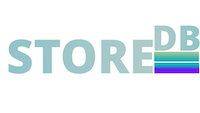
| STUDYID | STOREDB:STUDY1214 |
|---|---|
| CREATEDON | 2025-07-08 10:39:10 |
| MODIFIEDON | 2025-07-08 10:39:10 |
| UPLOADER | Nadja Zeleznik |
| DOI | DOI:10.20348/STOREDB/1214 |
| STUDY NAME | ||
|---|---|---|
| Analysis of recommendations for stakeholder engagement | ||
| STUDY STATUS | ||
| Published: Open access to everyone | ||
| DATA SHARING POLICY | ||
| CC-Attribution Non-Commercial No Derivatives | ||
| STUDY TYPE | ||
| 01-02-01 - Risk communication study | ||
| PRINCIPAL INVESTIGATOR | ||
| Nadja Zeleznik | ||
| BIOLOGICAL SAMPLE AVAILABLE | ||
| No | ||
| ECOLOGICAL DATA | ||
| No | ||
| STUDY DESCRIPTION | ||
| This report presents a comprehensive analysis of existing recommendations on stakeholder engagement in the nuclear energy sector, covering the entire lifecycle of nuclear facilities—from policy formation to decommissioning. Conducted as part of Task 1.3 of the ECOSENS project, the review critically examines 55 international and EURATOM-funded documents to identify cross-cutting principles, engagement gaps, and best practices for inclusive decision-making.
The review used a systematic scoping procedure focused on reports from EURATOM research projects and international organisations such as IAEA, OECD-NEA, and others. A specially designed data collection template enabled uniform analysis across thematic domains which included decommissioning, environmental remediation, emergency preparedness and recovery, nuclear policy and governance, radiation protection and radioactive waste management. Stakeholders were categorised using the Quintuple Helix model (research, economy, environment, civil society/media, political institutions), and the emphasis was placed on interactive participation forms rather than one-way communication. Across all domains, the following universal principles and actions are recommended: • Early and Continuous Engagement: Initiate stakeholder involvement from the outset and maintain it throughout project lifecycles. • Varied Forms of Participation: Employ deliberative dialogues, partnerships, and two-way consultations tailored to context and stakeholder groups. • Trust and Transparency: Ensure independent assessments of safety and investment decisions, and communicate clearly about objectives, risks, and outcomes. • Supportive Infrastructure: Provide financial, legal, and educational means to empower meaningful stakeholder involvement. • Adaptable Governance: Review and revise national legislative and administrative frameworks to enable effective public participation. • Monitoring and Responsiveness: Continuously track public perceptions and concerns to inform and adjust engagement strategies. This synthesis underscores the evolving expectations and responsibilities in stakeholder engagement within nuclear governance. The findings provide a strategic foundation for the ECOSENS project’s subsequent activities, including survey development, case studies in different participatory countries and recommendations for future stakeholders’ engagement in nuclear sector. It also offers valuable insights for policymakers, regulators, and practitioners aiming to foster inclusive, legitimate, and resilient nuclear decision-making processes. | ||
| DATASET NAME | ||
|---|---|---|
| Analysis of recommendations for stakeholder engagement | ||
| DOI | DOI:10.20348/STOREDB/1214/1333 | |
| TASK | ||
| Task 1.3 | ||
| DELIVERABLE | ||
| ECOSENS project, WP1 | ||
Type: application/vnd.openxmlformats-officedocument.wordprocessingml.document
File size:
Uploaded on: 2025-07-08 10:41:06